IBS and Acupuncture
Most understand that there is a difference between Chinese medicine and Western medicine, though how they differ is not always clear.
Traditional Chinese medicine (TCM) recognizes humans are a complex interplay of the mind, body, and emotions with the concept of yin and yang providing the theoretical 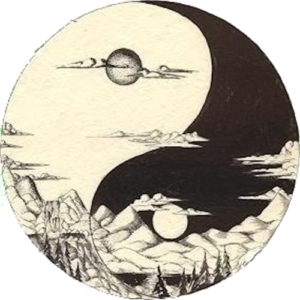 framework to effectively diagnose this interplay. Structure (yin) is maintained by function (yang) within all anatomy, physiology, and psycho-emotional expressions. The TCM practitioner (acupuncturist) understands that yin and yang work cooperatively to determine the health and vitality of a person. How is this vitality reflected in a person’s health?
framework to effectively diagnose this interplay. Structure (yin) is maintained by function (yang) within all anatomy, physiology, and psycho-emotional expressions. The TCM practitioner (acupuncturist) understands that yin and yang work cooperatively to determine the health and vitality of a person. How is this vitality reflected in a person’s health?
It all comes down to circulation. The quality of circulation in the body, sometimes referred to as Qi (pronounced chēē), is the manifestation of yin-yang cooperation. An acupuncturist is trained to identify circulatory pathologies and treat the source of those pathologies. In that sense, it might help to think of an acupuncturist as a circulation expert.
Blood, sweat, tears, digestive fluids, lymph, urine, bronchial secretions, sexual fluids, marrow, saliva, bile, and even oxygen are simultaneously being circulated throughout the body every moment of every day. First of all, that is amazing! Second, the quality of the fluids and the organs pumping those fluids largely determine if circulation is healthy, blocked, excessive, deficient, or misdirected within a specific physiological system. It’s these qualities of circulation that guide an acupuncturist’s diagnosis and treatment plan for a patient.
Let’s make an example out of symptoms I see all the time — digestive issues. How would these symptoms be treated by Western medicine versus TCM?
A patient visits her medical doctor seeking relief from abdominal pain, alternating diarrhea and constipation, and constant bloatedness and gas (www.mayoclinic.org). These symptoms have been present for over twelve weeks within the last six months. For most 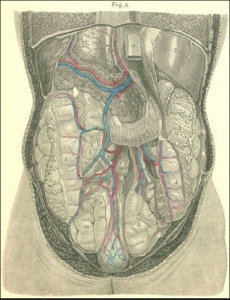 western medical practitioners, this would be a textbook presentation of irritable bowel syndrome (IBS). They would likely treat the digestive organs with a high-fiber diet, stool softeners, anti-diarrheal, anticholinergic, or antispasmodic medications. This treatment would have moderate to complete success as long as the patient stays on those medications. By contrast, an acupuncturist would take a holistic approach to investigate the involvement of other bodily systems beyond the digestive system which could include psycho-emotional factors.
western medical practitioners, this would be a textbook presentation of irritable bowel syndrome (IBS). They would likely treat the digestive organs with a high-fiber diet, stool softeners, anti-diarrheal, anticholinergic, or antispasmodic medications. This treatment would have moderate to complete success as long as the patient stays on those medications. By contrast, an acupuncturist would take a holistic approach to investigate the involvement of other bodily systems beyond the digestive system which could include psycho-emotional factors.
For this patient, the acupuncturist would want to determine the quality of circulation between her liver and digestive organs. Why? In the TCM model, the liver plays a significant role in digestion and defecation. If circulation in the liver is inhibited, it can be a considerable factor in causing irregular bowel movements. Moreover, the liver plays an important role in regulating the menstrual cycle, which also influences the digestive system for women. If the acupuncturist learns the patient is having menstrual irregularities coinciding with chronic emotional distress around the time of her menstrual cycle, they would diagnose a pathology within the circulatory dynamic between the liver and digestive organs. Restoring this circulatory dynamic to a healthy state would be the focus of the treatment and likely resolve the digestive, emotional, and menstrual irregularities without medication. Once the most uncomfortable symptoms were resolved, further treatment would include dietary modifications, longevity exercises, meditation, and occasional acupuncture treatments.
Chinese medicine and acupuncture take a comprehensive look when diagnosing and treating the body. It’s no better or worse than Western medicine — it simply originates from a different philosophy for health and takes another approach to cultivating wellness in one’s life. Understanding the difference may help a person feel empowered in choosing their course of treatment.
GUEST BLOG:
 Paul Robinson earned is Master’s Degree in Traditional Chinese Medicine at Five Branches University in Santa Cruz, CA and currently practices in Washington, DC. When he isn’t practicing Chinese Medicine he is fermenting foods, cultivating his physical practice, meditating, playing in the ocean, and seeking adventure with his partner. Learn more about his practice at wwwliveloveflourish.com
Paul Robinson earned is Master’s Degree in Traditional Chinese Medicine at Five Branches University in Santa Cruz, CA and currently practices in Washington, DC. When he isn’t practicing Chinese Medicine he is fermenting foods, cultivating his physical practice, meditating, playing in the ocean, and seeking adventure with his partner. Learn more about his practice at wwwliveloveflourish.com
References:
Website
Mayo Clinic Online. (January 31, 2014) Diseases and Conditions: Irritable Bowel
Syndrome. www.mayoclinic.org. Retrieved on 03/2017.

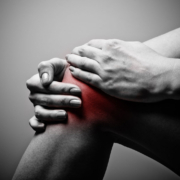



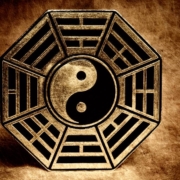




It’s a shame you don’t have a donate button! I’d definitely donate
to this superb blog! I guess for now i’ll settle for
book-marking and adding your RSS feed to my Google account.
I look forward to new updates and will share this blog with my Facebook group.
Chat soon!
Thank you for taking the time to read! I appreciate the feedback 🙂
Hey there, You’ve done an excellent job. I will certainly digg it and personally suggest to my friends. I am confident they’ll be benefited from this site.
I appreciate the kind words!